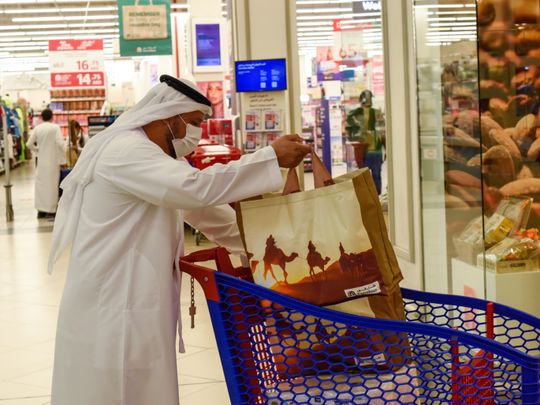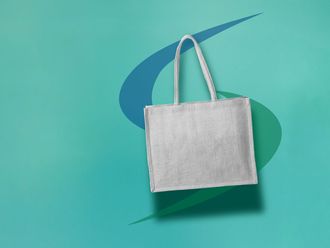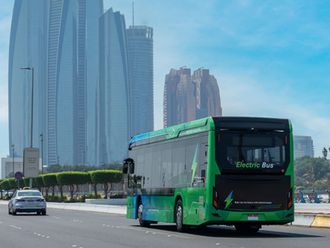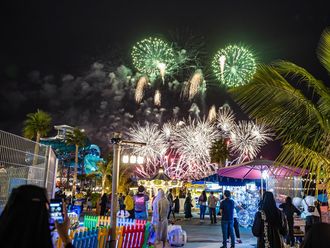
Abu Dhabi: Abu Dhabi prevented the use of more than 120 million single-use plastic bags over the last eight months, and collected more than 50 million disposable water bottles for recycling in 2022.
These strides in curbing the use of single-use products will be ramped up over the course of the year, with authorities aiming to promote a culture that steers clear of all kinds of single-use items, Fayeza Al Seiari, senior specialist for outreach programmes at the Environment Agency Abu Dhabi, told Gulf News.
“The emirate effectively began this journey on June 1, 2022 when the ban on single-use plastic bags came into effect. We then introduced the ‘Mission to Zero’ campaign to encourage a shift away from all single-use plastics. We’ve already seen increasing commitment among residents, retailers and even smaller stores to phase out these disposable bags. Our aim is to double down on this commitment to also promote a movement away from all kinds of disposable items that have alternatives, including water bottles, cutlery, and food packaging, as laid out in the Single-Use Plastic Policy,” Al Seiari said.
Abu Dhabi policy
The UAE was reported to be using plastic bags at nearly four times the global average in 2019, in a finding discussed at the World Government Summit. The very next year, Abu Dhabi’s introduced its ‘Single-Use Plastic Policy’. The regulation began to be implemented last year with the ban on the single-use plastic bag distribution.
Aside from a few specialised uses – such as for fresh produce or medicines – single-use plastic bags have become hard to find in the emirate. Major retailers have also collaborated with the emirate’s environment sector regulator, the EAD, to charge 50 fils for every multiple-use bag, thus encouraging customers to bring their own bags when shopping.
Water bottles
Alongside this, the emirate’s environment sector regulator, the EAD, is now expending efforts to reduce the use of other plastic products designed for single use.
“Last year, a ‘Pile It Up’ challenge saw the participation of 250 schools, and about 50 million water bottles were collected for recycling. We will relaunch the challenge again this February,” Al Seiari said.
“Our aim is to recover for recycling 50 per cent of all bottles sold in the emirate,” she added.
Another part of this drive involves setting up recycling vending machines in areas of high footfall so that residents can collect points or awards by returning plastic containers.
Government organisation challenge
At the same time, the EAD has launched a challenge that encourages government organisations to replace all single-use plastic products.
“This initiative is more comprehensive, and we will recognise entities that are best able to do away with all kinds of disposable items, including cutlery, cups, and packaging,” Al Seiari said.
The EAD is also continuing to visit smaller stores, including groceries, to increase awareness about the ban on single-use plastic bags.
“Since June, we’ve visited nearly 1,250 groceries or baqalas, and we will reach out to many others soon,” she said.
Positive shift
Asked whether she had noted a change in people’s behaviours, the official said there was a definite global shift towards becoming more sustainable.
“Our customer service units report many more queries from residents about what alternatives they can use instead of their single-se counterparts. Many also want to know where to recycle, and we do tell them that there are a number of private companies that offer services, including door-to-door ones,” Al Seiari said.
“In most cases, eliminating the use of disposables just requires a bit of planning ahead, and this is the least we can all do for our planet and our future generations,” she added.
UAE-wide policy
While each emirate has announced its own timeline for a ban on single-use plastic bags, a pan-UAE ban on the import, production and circulation will come into effect from January 1, 2024. Other single-use materials will be banned from 2026 onwards, including plastic or foam products like cups, plates, containers, boxes, and cutlery like spoons, forks, knives, chopsticks, straws and stirrers.
Alternatives for single-use items
Bags: Use multi-use fabric or plastic bags instead of single-use plastic or paper bags. Reuse your bags as many times as possible.
Cups and lids: Use glass or plastic cups instead of plastic, paper and Styrofoam cups that have to be thrown away after one use.
Stirrers: Opt for plastic or stainless steel stirrers that can be washed or reused.
Straws: Choose washable steel straws instead of plastic or paper alternatives.
Bottles: Take along a refillable water bottle instead of purchasing water bottles. If you do use a plastic water bottle, make sure to return it to a recycling point.
Plates: Use glass, plastic or steel plates that can be washed clean and reused rather than choosing to use disposable plates.
Cutlery: Stick to stainless steel or plastic cutlery that can be washed and reused.
Food containers: Plastic and glass tupperware is always better than plastic, foil, Styrofoam or paper containers that have to be thrown away. Steer clear from ziplock bags and aluminium foil for storage as these have to be disposed after use.











